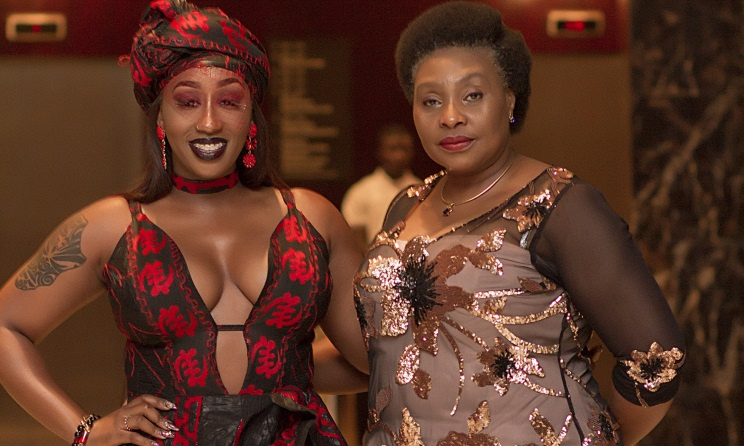Lessons gleaned from AFRIMA 2018
Touted as Africa’s Grammys, the All Africa Music Awards (AFRIMA) held its 2018 edition last weekend in Accra Ghana.
 Ugandan politician Bobi Wine with Moroccan star Hamza El Fadly.
Ugandan politician Bobi Wine with Moroccan star Hamza El Fadly. Kenyan rock outfit Rash Band on the red carpet.
Kenyan rock outfit Rash Band on the red carpet. Kenyan star Victoria Kimani with South African legend Yvonne Chaka Chaka.
Kenyan star Victoria Kimani with South African legend Yvonne Chaka Chaka. Ugandan TV personality and AFRIMA red carpet host Anita Fabiola.
Ugandan TV personality and AFRIMA red carpet host Anita Fabiola.
Despite hitches, the four-day event was a great opportunity for industry players to meet, network and forge a way forward. Whether at the scheduled events or on the sidelines, AFRIMA in more ways than one brought the African music industry together.
The programme began with a welcome party for nominees on opening night, which brought together more than 500 partners and stakeholders. This included artists, media people, African Union officials, ministers of industry, trade, culture, arts and tourism from across Africa, record companies, label owners and other stakeholders.
On the second day, Kempinski Hotel in Accra hosted the Africa Music Business Summit. The panel included South African legend Yvonne Chaka Chaka, Ugandan MP/music activist Bobi Wine, DJ Van, Nigerian music executive Kenny Ogungbe, Ghanaian media owner Bola Ray and Musicians Union of Ghana (MUSIGA) president Bice Osei Kuffour. Discussions centered around leveraging global opportunities for African music by solving existing tech gaps, taking music business seriously and embracing the digital revolution. Delegates also shared the various challenges they face in their countries and explored solutions that may work in the African context.
“We must look at music not just as a business but also a tool for social transformation,” Bobi Wine said. “Africa faces many challenges because of poor leadership and musicians can play their role in demanding for better governance.”
Independence Square in Accra hosted the AFRIMA Music Village 2018 on the eve of the second day. The mega concert attracted a mammoth crowd that thronged the venue to get a taste of Africa’s finest performers. The capacity crowd was entertained by a diverse line-up that included Sarkodie (Ghana), Nasty C (South Africa) and Victoria Kimani (Kenya). Though attendees seemed to enjoy themselves, backstage was a little chaotic as artists tried to figure out the order of performance. Backstage facilities were also lacking, with no designated waiting area, lounge or green rooms for artists to rest. A tent with minimal seating and a catering area was all there was.
In an effort to promote pan-African tourism, the AFRIMA programme typically includes a city tour of the host city. The tour included tourist spots such as Independence Square and Kwame Nkrumah Park and Mausoleum. It closed with a reception hosted by the government at the president’s office.
On the final day of activities, participants started with a nominees cocktail at Kempinski Hotel. The action then moved to the Accra International Conference Center for the AFRIMA awards ceremony, which was broadcast live in 84 countries. The African stars took to the red carpet amid attention from a barrage of journalists. They then proceeded to the main hall for the main event, which proved to be emotive and full of surprises and unforgettable moments.
With myriad of lessons to be learnt, the 2018 edition of AFRIMA came to a close. Designed to promote the richness of African music to a global audience, the award show remains a significant resource for the African music industry. It, however, continues to be dogged by inadequate logistical coordination and numerous snags.
As the music industry looks forward to the 2019 edition, it is hoped that the vision and promise of AFRIMA will become more concrete with each passing year.






















Commentaires
s'identifier or register to post comments